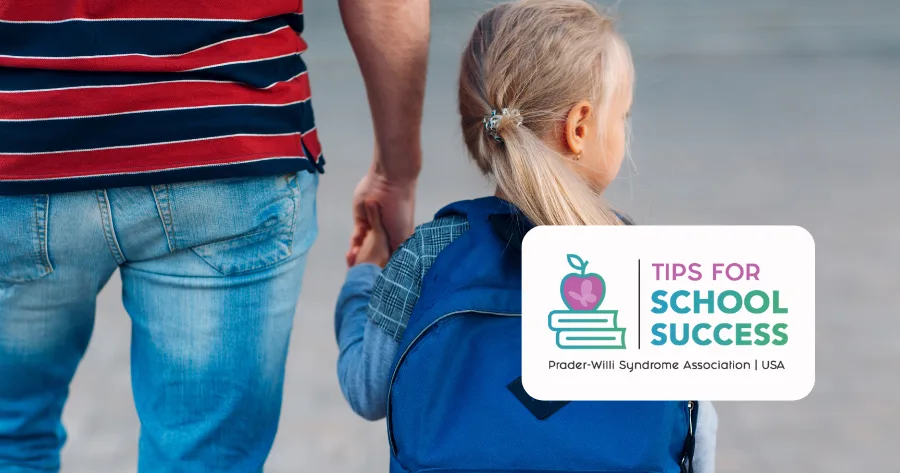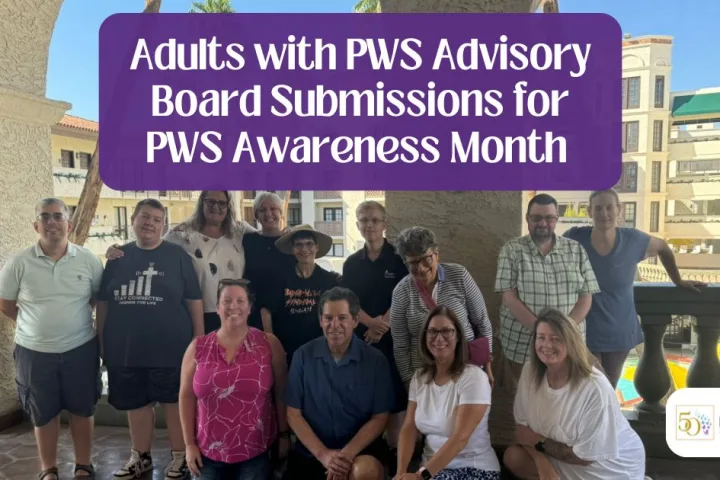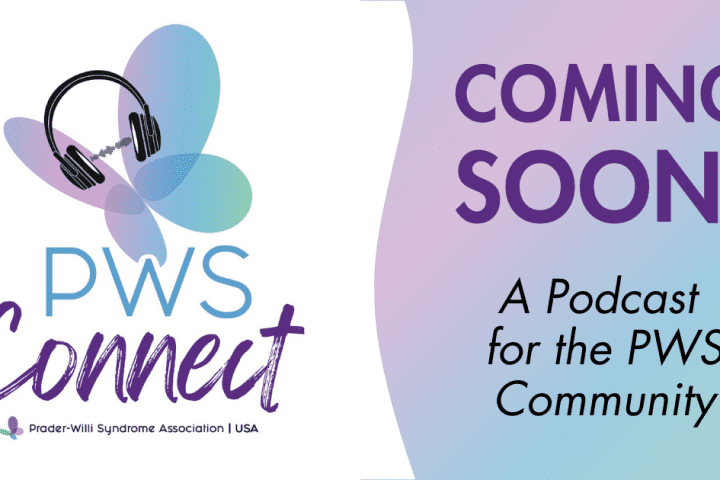Contributed by PWSA | USA's Family Support Director Stacy Ward
PWSA | USA often receives questions about early intervention, the difference between Individualized Education Programs and Individual Family Support Plans, and how to qualify for each from parents. Part C (Early Intervention) of the Individuals with Disabilities Education Act (IDEA) was established in 1986 by congress in response to an urgent need to “enhance the development of infants and toddlers with disabilities; reduce educational costs by minimizing the need for special education through early intervention; minimize the likelihood of institutionalization, and maximize independent living; and enhance the capacity of families to meet their child’s needs.” {§1431(a)(1)(2)(3)(4)}
Part C varies from state to state much more than Part B of IDEA. Depending on your state, early intervention (EI) is provided between a child's birth and three or five years of age. This is the time frame when brains are most malleable, and we can make the most change in the shortest time frame. In some states, providers may offer a Response to Intervention (RTI) services prior to enrolling in EI. We often see this with speech and language therapy. It’s important to remember that accepting the RTI does not mean that you are forfeiting your right to EI, you can agree to both.
A difference between Part C and Part B is the use of health insurance. Many Part C lead agencies require families to exhaust all insurance services before they will provide the services. An additional difference between Part C and Part B is that Part C focuses on the family unit and services are provided in the natural environment, usually the home rather than in school. EI is family centric rather than child centric. States have been given the authority to determine the definition of developmental delay that will be used in determining eligibility for EI and whether or not it includes children at risk for disabilities in their service provision. Evaluations are conducted by clinical professionals who are experienced with the development of infants and toddlers. Evaluation areas include physical (reaching and crawling), cognitive (thinking and problem solving), communication (talking and understanding), social/emotional (feeling secure and happy) and adaptive (eating, dressing). If the child is determined eligible for EI, an Individualized Family Support Plan (IFSP) is created.
What is an Individualized Family Service Plan (IFSP) you may ask? The IFSP is a plan that documents and guides the EI process and services for children and their families. The IFSP must include several things: the child’s present level of functioning need in all areas that were evaluated, family information including concerns, priorities, and resources, expected outcomes, specific EI services being provided and where in the natural environment they are being provided, who is paying for the services and the steps that will be taken when the time comes to transition out of EI. The IFSP is developed by the team, including the parents and reviewed every six months and updated at least once annually.
To learn more about your state’s EI regulations and policies visit https://ectacenter.org/partc/statepolicies.asp.
Share this!





 Perry A. Zirkel has written more than 1,500 publications on various aspects of school law, with an emphasis on legal issues in special education. He writes a regular column for NAESP’s Principal magazine and NASP’s Communiqué newsletter, and he did so previously for Phi Delta Kappan and Teaching Exceptional Children.
Perry A. Zirkel has written more than 1,500 publications on various aspects of school law, with an emphasis on legal issues in special education. He writes a regular column for NAESP’s Principal magazine and NASP’s Communiqué newsletter, and he did so previously for Phi Delta Kappan and Teaching Exceptional Children. Jennifer Bolander has been serving as a Special Education Specialist for PWSA (USA) since October of 2015. She is a graduate of John Carroll University and lives in Ohio with her husband Brad and daughters Kate (17), and Sophia (13) who was born with PWS.
Jennifer Bolander has been serving as a Special Education Specialist for PWSA (USA) since October of 2015. She is a graduate of John Carroll University and lives in Ohio with her husband Brad and daughters Kate (17), and Sophia (13) who was born with PWS. Dr. Amy McTighe is the PWS Program Manager and Inpatient Teacher at the Center for Prader-Willi Syndrome at the Children’s Institute of Pittsburgh. She graduated from Duquesne University receiving her Bachelor’s and Master’s degree in Education with a focus on elementary education, special education, and language arts.
Dr. Amy McTighe is the PWS Program Manager and Inpatient Teacher at the Center for Prader-Willi Syndrome at the Children’s Institute of Pittsburgh. She graduated from Duquesne University receiving her Bachelor’s and Master’s degree in Education with a focus on elementary education, special education, and language arts. Evan has worked with the Prader-Willi Syndrome Association (USA) since 2007 primarily as a Crisis Intervention and Family Support Counselor. Evans works with parents and schools to foster strong collaborative relationships and appropriate educational environments for students with PWS.
Evan has worked with the Prader-Willi Syndrome Association (USA) since 2007 primarily as a Crisis Intervention and Family Support Counselor. Evans works with parents and schools to foster strong collaborative relationships and appropriate educational environments for students with PWS. Staci Zimmerman works for Prader-Willi Syndrome Association of Colorado as an Individualized Education Program (IEP) consultant. Staci collaborates with the PWS multi-disciplinary clinic at the Children’s Hospital in Denver supporting families and school districts around the United States with their child’s Individual Educational Plan.
Staci Zimmerman works for Prader-Willi Syndrome Association of Colorado as an Individualized Education Program (IEP) consultant. Staci collaborates with the PWS multi-disciplinary clinic at the Children’s Hospital in Denver supporting families and school districts around the United States with their child’s Individual Educational Plan. Founded in 2001, SDLC is a non-profit legal services organization dedicated to protecting and advancing the legal rights of people with disabilities throughout the South. It partners with the Southern Poverty Law Center, Protection and Advocacy (P&A) programs, Legal Services Corporations (LSC) and disability organizations on major, systemic disability rights issues involving the Individuals with Disabilities Education Act (IDEA), Americans with Disabilities Act (ADA), and the federal Medicaid Act. Recently in November 2014, Jim retired.
Founded in 2001, SDLC is a non-profit legal services organization dedicated to protecting and advancing the legal rights of people with disabilities throughout the South. It partners with the Southern Poverty Law Center, Protection and Advocacy (P&A) programs, Legal Services Corporations (LSC) and disability organizations on major, systemic disability rights issues involving the Individuals with Disabilities Education Act (IDEA), Americans with Disabilities Act (ADA), and the federal Medicaid Act. Recently in November 2014, Jim retired.